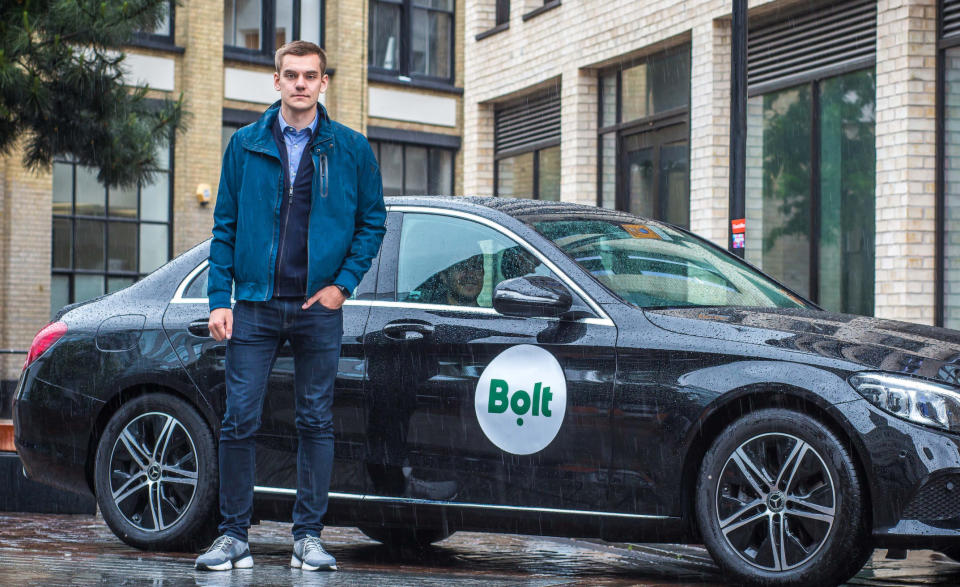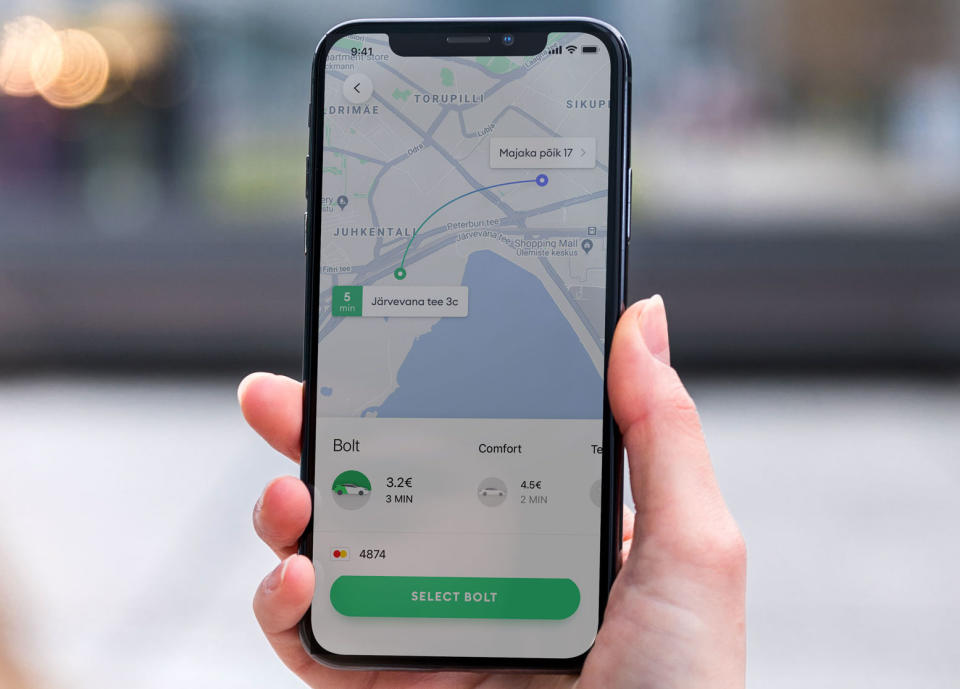Uber and Lyft's woes 'supporting' European rival Bolt, CEO says

For once hot tech startups — particularly in transportation, 2019 has been a dreadful year.
Shares in US ride-hailing app Lyft (LYFT) have dropped more than 35% since the company went public in March. Rival Uber (UBER) has crashed 40% since its stock market listing in May. Investors baulked at the huge losses at both businesses and Uber’s stock crashed 9% in a day earlier this month after it reported a loss of $1.1bn in the third quarter.
You might think this would put investors off ride-hailing altogether. But one European rival claims to be bucking the trend — and in fact benefitting from Uber and Lyft’s misery.
“In some sense the public market, today’s environment, is actually supporting us,” Markus Villig, the founder and chief executive of ride-hailing app Bolt, told Yahoo Finance UK.
Estonian-headquartered Bolt, formerly known as Taxify, was valued at over $1bn in a funding round earlier this year. Villig said his rivals’ woes helped convince investors of his pitch.
“Previously, one of the concerns was what’s going to happen if they start to subsidise?” Villig told Yahoo Finance UK at the Web Summit conference in Lisbon earlier this month. “Now that question is off the table.
“Investors will not be happy to see them take another few billion in losses in the short-term. They want to see a clear path to profitability. Once you’re in a more rationale environment, where no player is subsidising that heavily, the question is what’s going to determine who’s going to win? We believe very much it’s about cost effectiveness.”

Villig, 25, founded Bolt in his native Estonia in 2013 when he was just 19. From the start, he has worked to keep costs down, in contrast to Uber.
“That’s the only reason why we exist as a company,” he said, highlighting Bolt’s “steady, sustainable growth.”
The ride-hailing startup is near identical to Uber in function. But whereas Uber has raised over $25bn since it was founded in 2009, Bolt has only raised about $200m.
Villig said Uber’s lavish bankrolling created a “bloated” company with “a culture where nobody cares about costs.”
“They thought: this is another one of those internet businesses,” he said. “Only now are investors realising that this isn’t the case. They made the same mistake with WeWork in many ways as well.
“What everyone’s realising now is that it’s not a regular software-only business — you’re actually moving people, you’re moving assets. This is an industry where costs do matter.”
Bolt is still in the red — it lost €61m (£52m) on gross bookings of about €1bn last year — but Villig put this down to expansion costs. New markets require about a year of investment to create a network of drivers and riders.
“Thanks to us having such a low cost structure, more than two-thirds of the markets we’re in today are already break-even or profitable,” Villig said. “If we had the same overheads as Uber, we’d be losing money in every single market we’re in.”
Bolt’s lower overheads mean a better deal for customers and drivers. The app charges drivers 15% commission, compared to Uber’s 25%, and Villig claims to also offers lower fares on average.
“If you can sustainably offer lower fares and a lower commission to drivers, that’s a pretty compelling argument for both sides to switch over,” he said.
The company now operates in 35 countries across Europe and Africa, and Villig claims Bolt is number one in many of them. Uber is its main rival in most markets, with Lyft yet to make the leap across the pond to Europe.

Bolt launched in London, one of Uber’s biggest markets, in June. Villig said the roll-out is going “extremely well.”
“London was a market fully dominated with only one player essentially, which meant drivers were protesting and unhappy, customers were being overcharged, and so on,” he said. “It was just natural for us to come in.”
Bolt already has over 50,000 drivers signed up to its platform in London, with around half already on-boarded. The app has 300,000 consumers using its app in city.
“We’re the only serious challenger in the market,” Villig said. “We’re growing really rapidly.”
Earlier this year, the New York Times dubbed Bolt a “thorn in Uber’s side.” The startup is still tiny compared with Uber, which has a market value of $45.1bn despite its share price issues. Has the larger rival ever tried to buy Bolt to make the problem go away?
“This is a duopoly market,” Villig said. “What you see around the world is every time these companies merge, it’s just a short-term fix. Sooner or later there’s going to be another player that comes in.”
This doesn’t answer the question. Has there been an approach?
“The point is, it wouldn’t make sense,” Villig said.
Yes or no?
“I can’t comment on that,” Villig said.

 Yahoo Finance
Yahoo Finance 